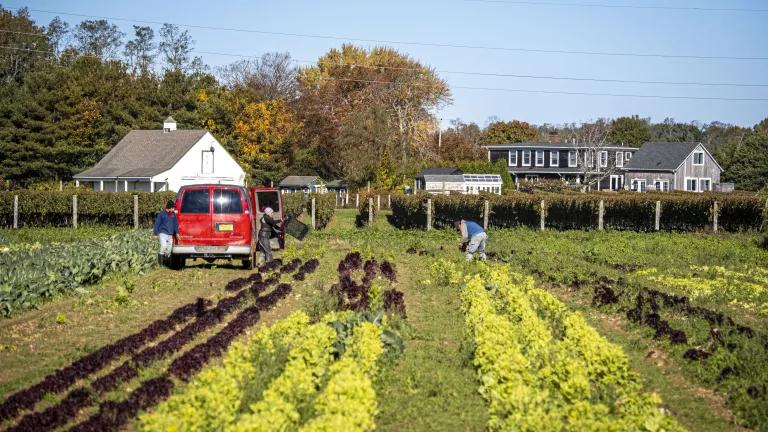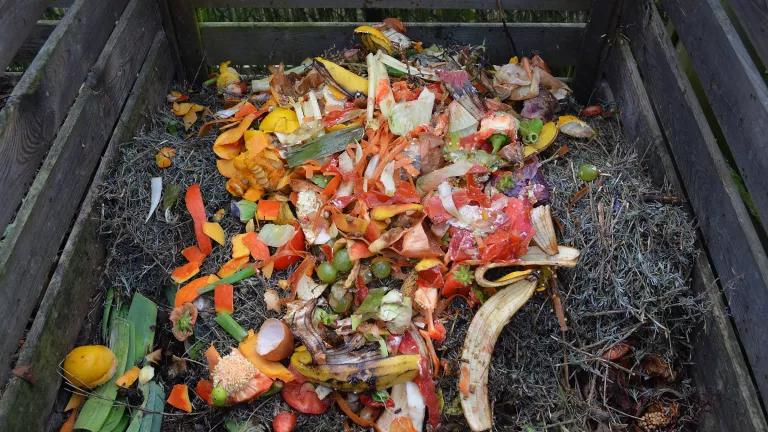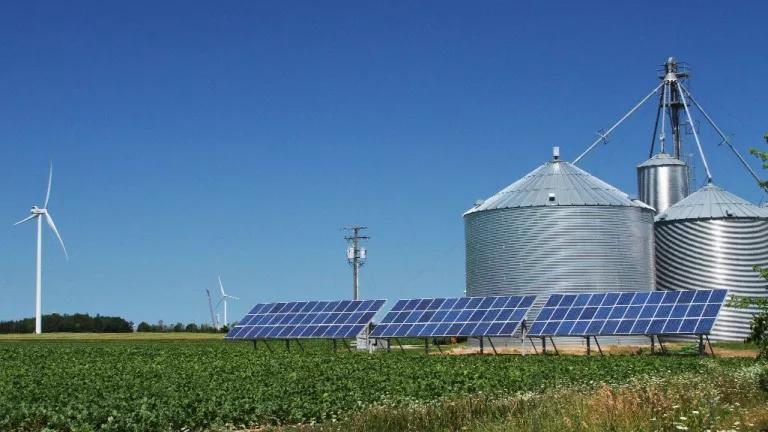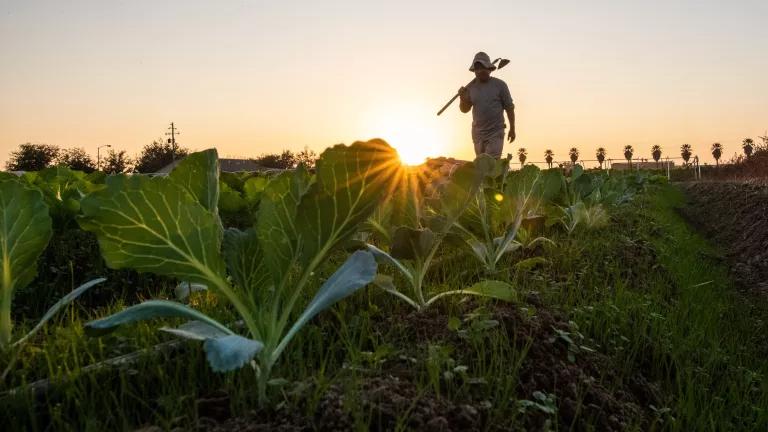
Sang Lee Farms staff in Peconic, New York, on November 5, 2021. The organic farm has been operating and growing on Long Island for over 70 years.
Climate Week 2022 will bring together thousands of participants eager to strategize on the best solutions to address our growing climate crisis in the U.S. and around the world. There will be no shortage of options for learning and sharing ideas. I hope that many of them will look to solutions for cutting greenhouse gas emissions from food production and agriculture.
After all, the U.S. food and agriculture industry is in a unique position: It is profoundly vulnerable to the impacts of climate change, yet also has the capacity to become a significant climate solution. Transforming this sector away from extractive practices and toward climate-friendly strategies is essential as farmers struggle with extreme weather events and once-reliable food supply chains become much less so. Meeting this challenge likely means the wholesale adoption of farming practices that reduce reliance on fossil fuel-intensive inputs like synthetic fertilizers and pesticides; meaningfully and equitably addressing emissions from animal agriculture; and prioritizing soil health.
The good news is that practices like these have been adopted with increasing success by organic farmers over a period of decades. Certified organic farming offers a comprehensive and time-tested agricultural system for mitigating and adapting to climate change. Organic farming also has the benefit of being defined and enforced through federal law. However, the full potential of organic will only be realized if we increase public investment in programs that help more farmers adopt these beneficial practices, mitigate the risk of the organic transition process, expand research programs, and ramp up technical assistance.
Organic agriculture is an important lever in moving the needle on climate change. Here’s why:
Organic Farming Reduces Greenhouse Gases
Because fossil fuel-based fertilizers and most synthetic pesticides are prohibited in organic farming, it has a significantly lower carbon footprint. Production of these farm chemicals is energy intensive and there are significant emissions associated with use. Studies show that the elimination of synthetic nitrogen fertilizers alone, as is required in organic systems, could lower direct global agricultural greenhouse gas emissions by about 20%. A 40 year study conducted by the Rodale Institute also showed that organic farms use 45% less energy than conventional farms (while maintaining or exceeding yields after a 5-year transition period). Meanwhile, fumigant pesticides - commonly used on crops like strawberries and injected into soil - emit nitrous oxide (N2O), the most potent greenhouse gas. Research indicates that one commonly used fumigant pesticide, chloropicrin, can increase N2O emissions by 700-800%. Two other fumigants (metam sodium and dazomet) are also known to significantly increase N2O output.
Organic Farming Improves Soil Carbon Sequestration
Soil-boosting practices that are the foundation of organic agriculture also help sequester more carbon in soil compared to non-organic systems. Multiple meta-analyses comparing thousands of farms nationwide have shown that organic agriculture results in higher stable soil organic carbon and reduced nitrous oxide (N2O) emissions compared to conventional farming. A recent review of almost 400 studies showed pesticide use was associated with damage to soil invertebrates in more than 70% of the studies. Soil invertebrates are critical to carbon sequestration because they are responsible for the formation of soil components that are essential to building soil organic carbon. In fact, estimates indicate that with worldwide adoption of agroecological best management practices like diversified organic farming, soils could drawdown up to 157 parts per million (ppm) of carbon dioxide between 2020 and 2100.
Organic Farming Increases Resilience
Organic farms are required to build healthy soil and crops that make them better able to adapt in a changing climate. First and foremost, organic farmers rely on composting, crop rotation, and natural soil amendments rather than fossil fuel-based inputs in order to maintain or improve soil health. As stewards of healthy soil, organic farmers and ranchers can be a major force for climate mitigation (U.S. Department of Agriculture Secretary Vilsack confirmed as much during the recent announcement of the new USDA framework for resilient food and farming systems.)
Organic farming promotes resiliency by boosting soil’s ability to retain water and the natural nutrients found in healthy soils. By increasing organic matter in soil continuously over time, organic agriculture improves water percolation by 15%-20%, replenishing groundwater, and helping crops perform well in extreme weather like drought and flooding. A decades-long organic farming trial found that organic yields can be up to 40% higher than nonorganic farms in drought years. By foregoing most fossil fuel-based inputs, organic farmers are also more resilient and adaptable not only to stressors related to climate change but also other disruptive global stressors.
As farmers grapple with everything from extreme weather events to heat stress and wildfires, and less predictability in the face of a changing climate, it is essential for governments to support a transition to agricultural practices that increase resilience and dramatically decrease reliance on fossil-fuel based chemicals. Organic agriculture can and should play an important role in any climate action plan. Given the urgency of the climate crisis, we should build on what we know works.




